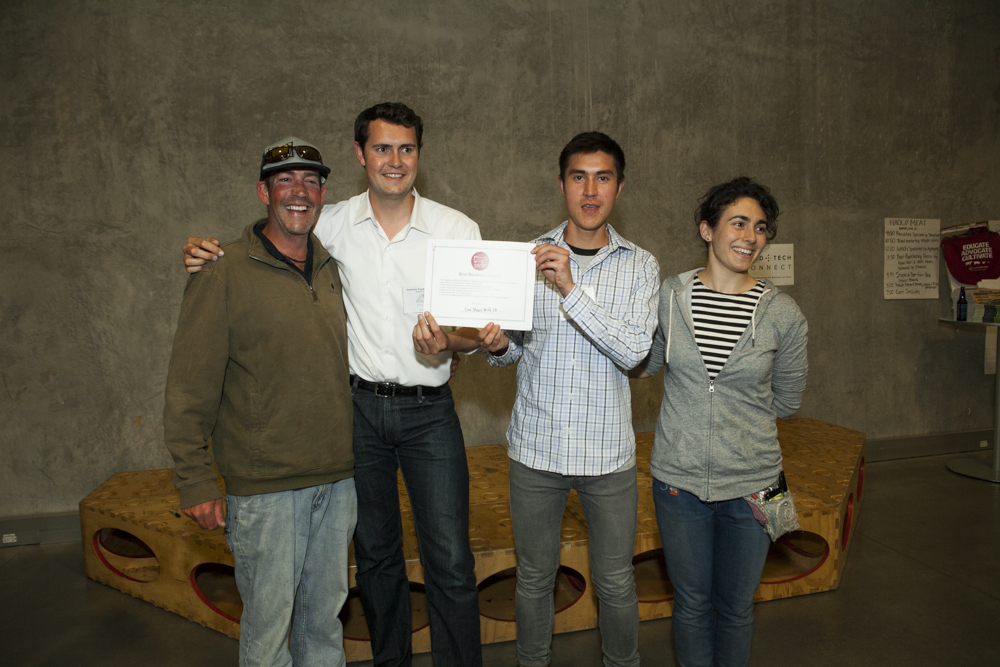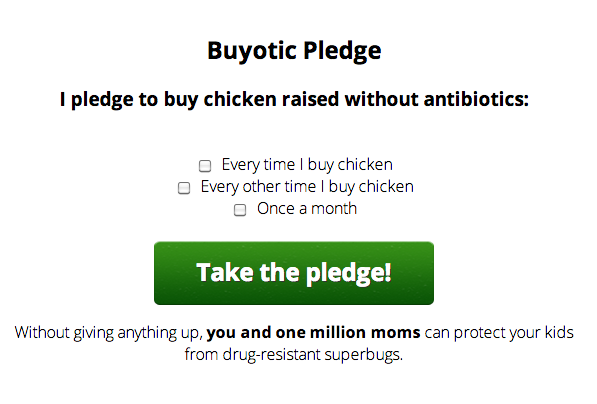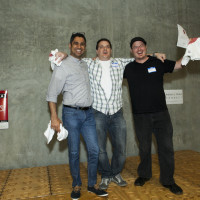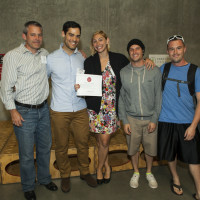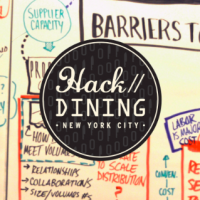A little over three months ago, we hosted Hack//Meat Silicon Valley, a hackathon that brought together 250 food industry leaders, entrepreneurs, technologists and creatives to develop hardware and software solutions to sustainable meat challenges. Ten winning teams were awarded prizes worth more than $125,000, including cash and consulting services from industry leaders to help them continue development of their projects.
Since the hackathon, many teams have continued working on their projects, so we’ve decided to share their progress through a series of blog posts over the coming weeks.
Last week, we kicked off the series with grand prize winning team, Farmstacker, which began as an eHarmony or AirBnb tool to connect young farmers with land and capital. This week, we share best social good winner Buyotic‘s progress. The team’s project is a mobile app that helps consumers shop their values by locating antibiotic-free chicken and make pledges to purchase it. Read on to find out how their concept has changed, what challenges they’ve faced and what may be next on the horizon.
Please share your feedback or resources in the comments below to help Buycotic continue developing its project.
________________________
Food+Tech Connect: Has your team continued development of Buyotic after the hackathon? Why or why not?
Buyotic: Yes, in the end, Max, Andrew and I kept working on Buyotic (we all live in the San Francisco Bay Area and were drawn to continue working). We were excited about the possibilities of creating something novel, efficacious, and useful for the hardworking nonprofits involved in this campaign against antibiotic resistance and CAFOs. We felt that we could volunteer our skills and time for a good cause.
FTC: What challenges have you faced in continuing to develop your idea and testing your prototype?
B: The main challenges have been logistical. We all have jobs and lots of demands on our time; I have wondered if an expectation of my leadership made me something of a bottleneck in that regard. We are still in progress developing the idea, but it’s been very slow progress due to a lack of communication and lack of dedicated time.
FTC: How has your technology and business model evolved since the hackathon?
B: Yes. We realized that major tech challenges faced the product we created at the hackathon, mostly because it relied on a dataset that doesn’t exist. As a result, we’re working on emphasizing the grassroots-advocacy side of our product and less on the provision of data to users. We don’t have a business model because we don’t intend this technology to be a self-sustaining start-up, but instead a tool for existing nonprofits (like the NRDC) or companies to use.
FTC: What additional feedback, support or resources do you need to move forward?
B: We have a core idea around which we are revolving at the moment, but we seem to lack the momentum and leadership to really make quick progress on it. We are held up by lack of time invested and the concern that our idea isn’t viable. It would be great to get advice on how to test our idea’s viability before we proceed, or receive feedback on our idea itself. It would also be good to know if any resources are available to help with the marketing or launch of our product (essentially similar to the launch of a grassroots campaign), which factors into its viability. We would appreciate guidance and a step-by-step outline for how to move forward with the project at this point.
FTC: What are the next steps for Buyotic?
B: The next steps are to continue to flesh out the product outline we have. Mid-month, I plan to sit down with the others to seriously discuss how viable we think this project is. At that point, if we decide to proceed, we will prototype and test a product.

